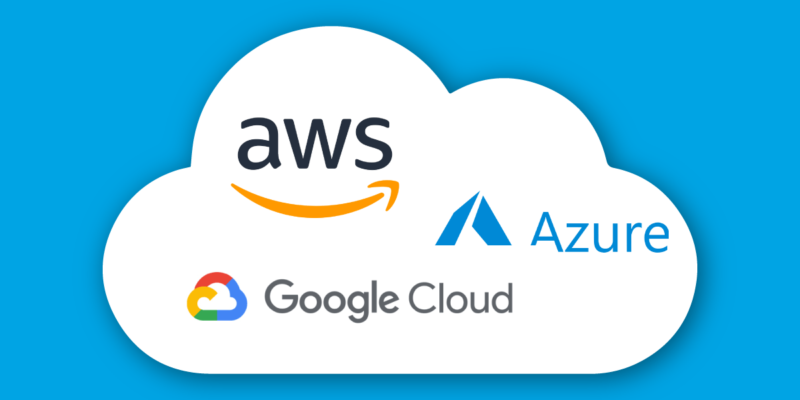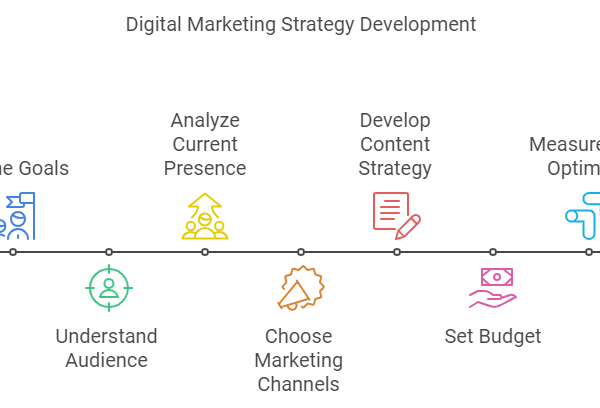
In today’s digital age, choosing the right cloud provider is crucial for businesses of all sizes. With the rapid advancement of technology, the landscape of cloud computing has become increasingly competitive. Among the leading players are Amazon Web Services (AWS), Google Cloud Platform (GCP), and Microsoft Azure. This article dives deep into the features, strengths, weaknesses, and unique offerings of each provider, helping you understand the nuances of AWS vs other cloud providers.
Understanding the Cloud Landscape
Before delving into the specifics of AWS, Google Cloud, and Azure, it’s essential to grasp the significance of cloud computing. Cloud services enable businesses to leverage powerful computing resources without the need for significant capital expenditure on hardware. This allows for greater flexibility, scalability, and operational efficiency.
The Rise of Cloud Providers
As organizations move towards digital transformation, the demand for cloud services has skyrocketed. Businesses are increasingly relying on cloud infrastructure to support their applications, data storage, and analytics needs. The three giants—AWS, Google Cloud, and Azure—each bring unique offerings and capabilities to the table, making it essential to understand their strengths and weaknesses.
AWS: The Pioneer of Cloud Computing
Amazon Web Services is widely recognized as the pioneer of cloud computing. Launched in 2006, AWS offers an extensive range of services and tools that cater to diverse business needs.
Key Features of AWS
- Comprehensive Service Portfolio: AWS provides over 200 fully-featured services, including computing power, storage options, and machine learning tools.
- Global Infrastructure: With data centers across 25 geographic regions, AWS offers a robust global infrastructure that ensures low latency and high availability.
- Strong Security Framework: AWS prioritizes security, offering a range of compliance certifications and tools to protect sensitive data.
- Scalability and Flexibility: Businesses can easily scale their resources up or down, paying only for what they use.
Advantages of AWS
- Mature Ecosystem: AWS has been in the market the longest, leading to a mature ecosystem with extensive documentation, user communities, and third-party integrations.
- Innovative Services: AWS consistently rolls out new features and services, keeping pace with industry trends and customer demands.
- Market Leader: As the largest cloud provider, AWS boasts a significant market share, giving it a level of reliability and trust that is hard to match.
Disadvantages of AWS
- Complex Pricing Structure: The pricing model can be complex and may lead to unexpected costs if not managed carefully.
- Steep Learning Curve: Due to the extensive range of services, newcomers may find it challenging to navigate the AWS ecosystem effectively.
Google Cloud: The Data Powerhouse
Google Cloud Platform, launched in 2008, leverages Google’s powerful infrastructure and analytics capabilities, making it an attractive option for data-driven businesses.
Key Features of Google Cloud
- Big Data and Analytics: GCP excels in data processing and analytics, offering tools like BigQuery and Dataflow for handling large datasets.
- Machine Learning Integration: With services like TensorFlow and AutoML, Google Cloud provides advanced machine learning capabilities.
- Kubernetes Expertise: Google pioneered Kubernetes, and its cloud offering includes strong support for containerized applications.
- Global Network: Google’s extensive global fiber network enhances performance and reliability.
Advantages of Google Cloud
- Superior Data Handling: GCP’s capabilities in handling big data and real-time analytics are unmatched, making it ideal for organizations focusing on data-centric applications.
- User-Friendly Interface: The platform is designed with a clean and intuitive interface, making it easier for new users to navigate.
- Competitive Pricing: Google Cloud often offers more straightforward and competitive pricing models compared to AWS.
Disadvantages of Google Cloud
- Smaller Service Portfolio: While growing rapidly, GCP’s service offerings are not as extensive as those of AWS.
- Market Share: Google Cloud holds a smaller market share compared to AWS and Azure, which may affect the availability of third-party integrations and community support.
Azure: The Enterprise-Friendly Cloud
Microsoft Azure, launched in 2010, is designed to integrate seamlessly with existing Microsoft services and is a preferred choice for enterprises that rely heavily on Microsoft technologies.
Key Features of Azure
- Integration with Microsoft Products: Azure offers seamless integration with products like Office 365, Dynamics 365, and SharePoint, making it ideal for organizations already in the Microsoft ecosystem.
- Hybrid Cloud Solutions: Azure provides robust support for hybrid cloud deployments, allowing businesses to manage resources across on-premises and cloud environments.
- Extensive Compliance Coverage: Azure meets a wide range of compliance standards, making it a preferred choice for industries with stringent regulatory requirements.
- DevOps and Development Tools: Azure offers a suite of DevOps tools, including Azure DevOps and GitHub integration, to streamline application development.
Advantages of Azure
- Enterprise Focus: Azure is built with enterprises in mind, providing services that cater to complex organizational needs.
- Hybrid Cloud Capabilities: Its strong hybrid cloud offerings allow businesses to leverage both on-premises and cloud resources effectively.
- Familiarity for Microsoft Users: Organizations that already use Microsoft products will find Azure’s interface and services familiar and easy to adopt.
Disadvantages of Azure
- Learning Curve: While user-friendly for Microsoft users, Azure can be complex for those unfamiliar with the ecosystem.
- Occasional Downtime: Azure has faced criticism for service outages, highlighting the need for careful planning around critical applications.
Comparing Pricing Models
When considering AWS vs other cloud providers, pricing plays a pivotal role. Each provider has its unique pricing model, which can impact the overall cost for businesses.
AWS Pricing
AWS uses a pay-as-you-go model, charging based on usage of services. This can lead to cost savings for businesses that effectively manage their resources but may also result in unexpected charges if not monitored closely.
Google Cloud Pricing
Google Cloud adopts a similar pay-as-you-go approach, with the added benefit of sustained use discounts. This model rewards long-term users with lower prices over time, making it cost-effective for businesses that require long-term resources.
Azure Pricing
Azure’s pricing is also usage-based but offers more flexibility with reserved instances, allowing businesses to commit to a specific resource usage over a period to save costs. This can be particularly beneficial for enterprises with predictable workloads.
Performance and Reliability
Performance and reliability are crucial factors when choosing a cloud provider. Each of the three giants offers robust performance, but there are nuances to consider.
AWS Performance
AWS is known for its high performance and low latency, thanks to its extensive global infrastructure. It also provides a wide range of instance types tailored for different workloads, ensuring optimal performance.
Google Cloud Performance
Google Cloud excels in network performance due to its global fiber network. The platform’s big data tools, such as BigQuery, are optimized for speed, making it ideal for real-time analytics.
Azure Performance
Azure’s performance is generally strong, especially for enterprises utilizing Microsoft services. However, its performance can vary based on the specific service and region, so it’s essential to conduct thorough testing based on your needs.
Security and Compliance
Security remains a top priority for organizations moving to the cloud. Each provider has its security protocols and compliance certifications.
AWS Security
AWS employs a robust security framework, offering encryption, identity and access management, and extensive compliance certifications, including HIPAA and PCI DSS.
Google Cloud Security
Google Cloud also prioritizes security, leveraging Google’s infrastructure to provide high levels of data protection. It offers features like encryption at rest and in transit, along with compliance with various standards.
Azure Security
Azure is designed with security in mind, offering a range of features to protect data and applications. Its compliance coverage is extensive, making it a strong choice for organizations in regulated industries.
Conclusion: Making the Right Choice
When it comes to AWS vs Google Cloud vs Azure, there is no one-size-fits-all solution. Each cloud provider has its strengths and weaknesses, and the best choice will depend on your organization’s specific needs, existing infrastructure, and future goals.
- Choose AWS if you need a comprehensive service portfolio, mature ecosystem, and strong security features.
- Opt for Google Cloud if your focus is on big data and analytics, machine learning capabilities, and competitive pricing.
- Select Azure if you’re heavily invested in the Microsoft ecosystem and require strong hybrid cloud capabilities.
Understanding the differences between AWS and other cloud providers will empower you to make informed decisions for your organization’s cloud strategy. As cloud computing continues to evolve, staying updated on the latest trends and developments will ensure you leverage the best solutions for your business.
By carefully evaluating the strengths of AWS, Google Cloud, and Azure, you can navigate the complex landscape of cloud computing and position your organization for success in the digital age.
click here to visit website











